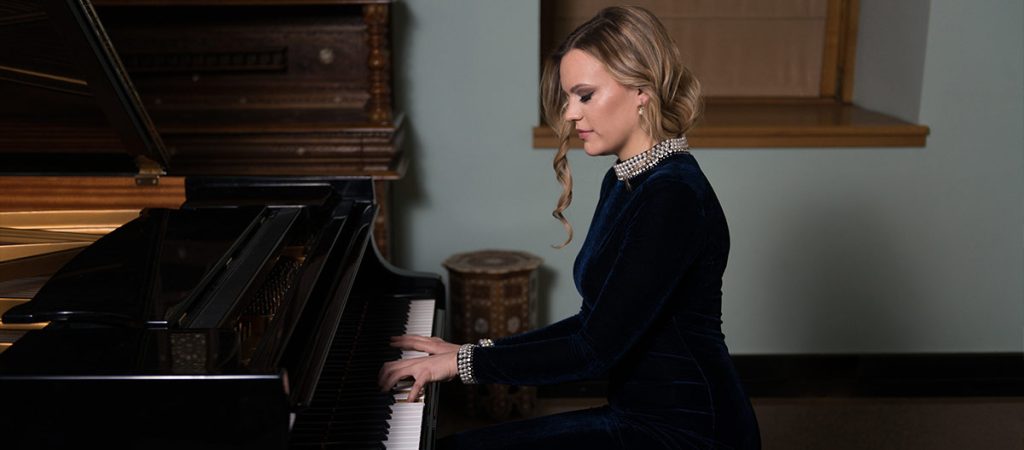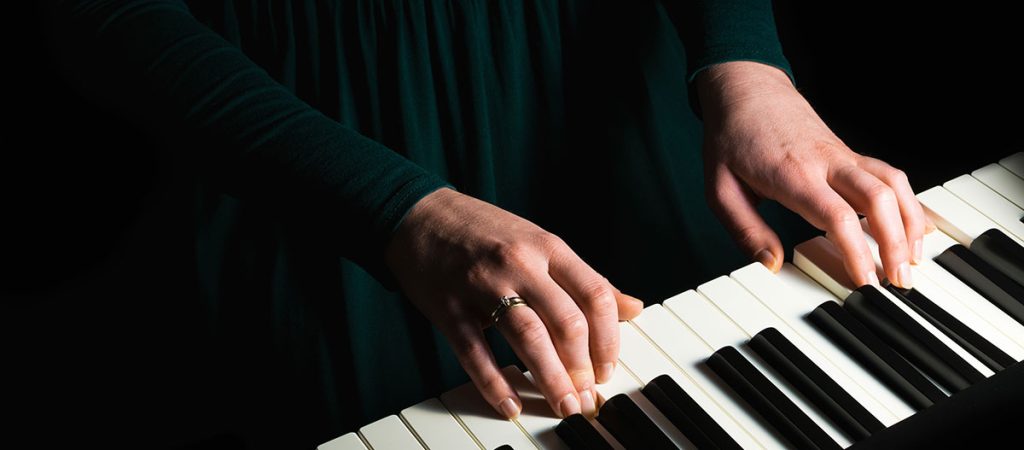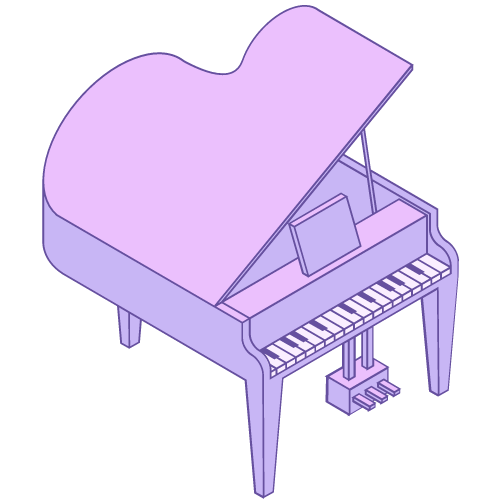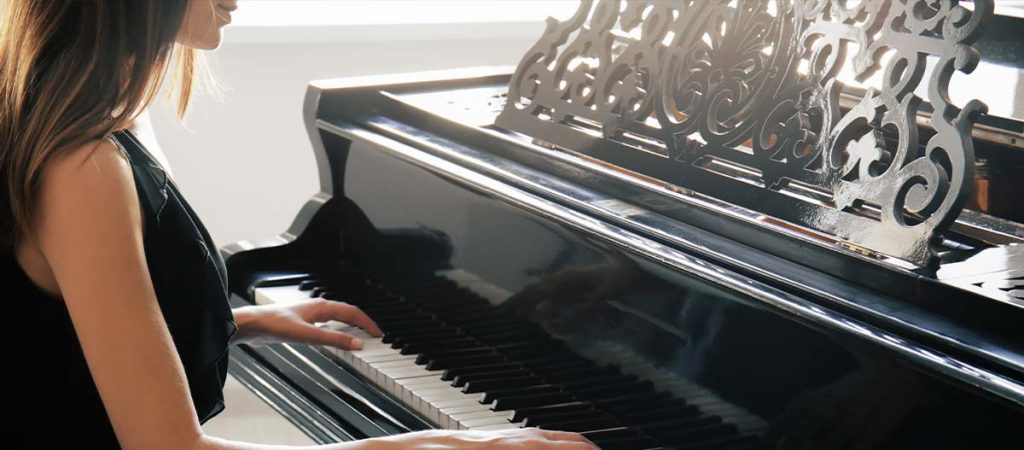Blog
How Playing Piano Can Boost Your Creativity
Creativity is an essential part of being human, and it manifests in many different ways—through art, problem-solving, writing, music, and much more. While many people associate creativity with visual arts or writing, music, particularly playing the piano, can be a powerful tool for boosting creativity. Whether you’re a professional musician or someone who plays the piano as a hobby, this instrument has the ability to enhance your creative thinking in various ways. In this article, we’ll explore how playing the piano can fuel creativity, stimulate your imagination, and open up new channels for self-expression.
1. Piano Playing Encourages Emotional Expression
One of the most direct ways the piano boosts creativity is by encouraging emotional expression. Music is often an emotional language, and the act of playing the piano allows you to express a wide range of feelings, from joy to sorrow, excitement to contemplation.

How it helps creativity:
- Playing the piano allows you to convey emotions that words cannot fully express. This ability to tap into and express your inner world fosters creative thinking.
- When you’re able to translate your emotions into music, you create a sense of personal release and emotional clarity, which can inspire fresh ideas and concepts.
2. Learning and Playing New Music Expands Your Cognitive Flexibility
Creativity is not just about making something new; it’s also about being able to approach problems from different angles. Learning to play the piano involves adapting to new pieces of music, changing tempos, dynamics, and hand positions, and overcoming challenges as they arise. This process strengthens your cognitive flexibility and sharpens your ability to think creatively in other aspects of life.
How it helps creativity:
- Learning complex pieces on the piano enhances your ability to problem-solve and find solutions in a flexible, adaptable way. The brain learns to think in new patterns and sequences, which can translate into more creative thinking outside of music.
- Mastering a new skill, whether it’s a difficult chord progression or a piece with intricate rhythm changes, teaches perseverance and how to tackle challenges creatively.
3. Improvisation and Experimentation on the Piano
Improvisation is one of the most creative forms of music-making. When you improvise on the piano, you’re essentially inventing music in real-time, experimenting with different melodies, harmonies, and rhythms. This spontaneous act of creativity allows you to think outside of the box and break free from rigid structures.
How it helps creativity:
- Playing piano improvisation encourages you to explore new ideas without fear of failure. It’s a free-flowing process that allows you to experiment with sound and form, leading to unexpected musical discoveries.
- The process of improvising also trains the brain to make quick, creative decisions and develop new ways of thinking, skills that can benefit creative endeavors in other areas, such as writing, design, or problem-solving in the workplace.
4. Developing a Deeper Understanding of Musical Theory and Harmony
Learning music theory, harmony, and the structures behind classical or contemporary piano pieces expands your creative toolkit. Understanding how chords, scales, and modes interact allows you to create your own music, whether through composition or improvisation.
How it helps creativity:
- By mastering the foundations of musical theory, you gain the tools to experiment with music in more sophisticated ways. You can break traditional musical structures to invent your own melodies, rhythms, and harmonies.
- Knowing how to use tension and release, or how to modulate between keys, enables you to create music with emotional and intellectual depth—skills that translate well into any creative field.
5. Piano Playing Enhances Pattern Recognition and Abstract Thinking
When you learn to play the piano, you’re constantly recognizing patterns. Notes, chords, scales, and rhythms are all based on certain patterns that your brain quickly learns to identify. This constant exposure to pattern recognition enhances abstract thinking, which is a key component of creativity.

How it helps creativity:
- By recognizing patterns in music, your brain becomes better at recognizing patterns in other areas of life. For instance, in creative writing, solving complex problems, or brainstorming new business ideas, the ability to identify and build upon patterns can foster new approaches and solutions.
- The ability to understand abstract concepts such as key changes, thematic development, and time signatures enables you to think more creatively when working through problems or generating fresh ideas.
6. The Piano Helps Develop Multitasking and Coordination
Playing the piano requires your hands to work independently while your mind focuses on various aspects of the music: reading sheet music, maintaining rhythm, and coordinating finger movements. The ability to multitask effectively enhances creative thinking by allowing you to juggle multiple ideas or projects at once.
How it helps creativity:
- The coordination required to play the piano strengthens your brain’s capacity for multitasking and problem-solving. This ability to handle multiple concepts or tasks simultaneously can improve your creativity when faced with complex projects in any field.
- By strengthening your motor skills and spatial awareness, the piano playing process can improve your overall cognitive functioning, leading to more dynamic and innovative thinking.
7. Piano Playing Stimulates the Brain’s Creative Centers
Scientific studies have shown that playing a musical instrument like the piano stimulates multiple areas of the brain, including those responsible for creativity. The act of creating music activates both the left and right hemispheres of the brain, enhancing both logical thinking and artistic creativity.
How it helps creativity:
- The brain’s right hemisphere, which is primarily responsible for creative tasks, is heavily engaged while playing the piano. When you focus on musical expression, your brain builds new neural connections, making it easier to apply creative thinking to other aspects of life.
- As you learn new pieces, play them, or experiment with your own music, the brain’s neural pathways are constantly being stimulated and strengthened, increasing mental agility and fostering the ability to think creatively in other endeavors.
8. The Piano Promotes Focus and Mindfulness
Creativity requires focus, and playing the piano is a perfect way to develop this essential skill. When you sit down to play, you engage in a focused, mindful activity that allows you to concentrate deeply on the music at hand. This state of focus, often referred to as “flow,” is known to promote creative thinking.
How it helps creativity:
- Playing the piano forces you to be fully present in the moment, helping you practice mindfulness. This heightened focus can carry over into other aspects of life, allowing you to engage more deeply with your creative pursuits, whether you’re writing, painting, or developing a new project at work.
- Developing focus while playing the piano helps you break free from distractions, creating a fertile mental space where new, creative ideas can flourish.
9. Piano Playing Enhances Musical Creativity for Composition
For those who are interested in composing their own music, the piano is an ideal instrument. It allows you to experiment with melody, harmony, and rhythm, and offers a wide range of sounds, textures, and tonalities to explore. Whether you’re composing a classical piece, a jazz solo, or a pop tune, the piano offers an immense variety of possibilities for creative expression.
How it helps creativity:
- Composing music on the piano forces you to think creatively about how to express emotions, ideas, or stories through sound. This form of artistic creation can deepen your understanding of music and enhance your ability to think creatively in other artistic forms.
- Composing with the piano encourages you to think about structure, dynamics, and themes, which can be applied to creative projects in other fields, such as visual art, film, and writing.
10. Playing Piano Connects You to a Global Community of Creators
Finally, playing the piano connects you to a global community of musicians and creators. Whether through sharing music with others, collaborating, or attending performances, being part of the global music community exposes you to new styles, genres, and ideas that can spark your own creativity.
How it helps creativity:
- By interacting with other musicians, you expose yourself to new influences and perspectives that can inspire your own creative process. Exposure to different musical traditions or genres can expand your creative horizons and lead to exciting new ideas.
- Being part of a creative community encourages you to share your ideas, receive feedback, and collaborate—valuable experiences that often lead to greater creative breakthroughs.
Conclusion
Playing the piano is more than just learning to play an instrument; it’s an exercise in creativity. Whether you’re improvising, composing, or simply expressing your emotions through music, the piano helps strengthen cognitive skills, enhance emotional intelligence, and develop creative thinking. As you practice, you nurture your ability to think outside the box, approach problems from multiple angles, and explore new ways of self-expression. So, whether you are an experienced pianist or just starting out, playing the piano can be an invaluable tool for unlocking your creativity and enriching all areas of your life.


